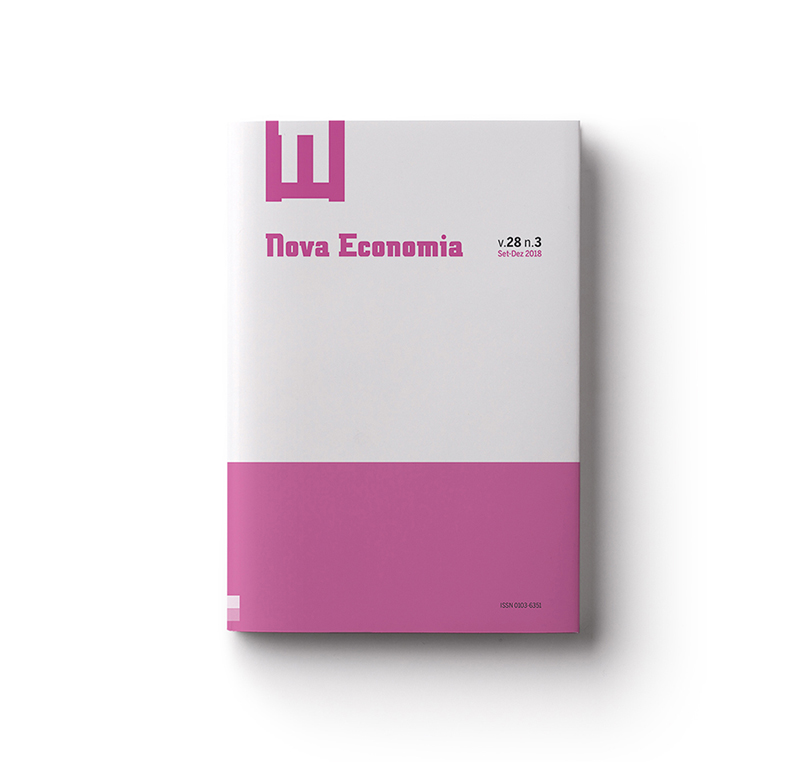A dinâmica da taxa de câmbio face às operações swap no Brasil (2002-2015)
uma interpretação pós-keynesiana
Resumo
Investiga-se, à luz da teoria pós-keynesiana, o comportamento da taxa de câmbio no Brasil face as intervenções com swaps cambiais do Banco Central de 2002 a 2015. Analisam-se as propriedades de uma economia aberta, as condicionantes da taxa de câmbio, o mercado cambial e a inserção do Brasil no sistema monetário internacional. Afere-se empiricamente o comportamento cambial frente às operações swap por meio de modelos ARCH/GARCH e VAR. Com os primeiros, observa-se a volatilidade das taxas de câmbio nominal e real efetiva, cujos resultados apontam presença de volatilidade no período. Em seguida, realizam-se estimações VAR, para estudar a variância das taxas de câmbio ante os swaps e variáveis relevantes ao comportamento cambial, concluindo-se que os swaps são respostas ao comportamento da taxa de câmbio nominal, embora seus efeitos são mais visíveis sobre a taxa de câmbio real efetiva.
Downloads
Publicado
Como Citar
Edição
Seção
Licença
Autore[a]s que publicam nesta revista concordam com os seguintes termos:
- Autore[a]s mantém os direitos autorais e concedem à revista o direito de primeira publicação, com o trabalho simultaneamente licenciado sob a Licença Creative Commons Atribuição 4.0 Internacional que permite o compartilhamento do trabalho com reconhecimento da autoria e publicação inicial nesta revista.
- Autore[a]s têm autorização para assumir contratos adicionais separadamente, para distribuição não-exclusiva da versão do trabalho publicada nesta revista (ex.: publicar em repositório institucional ou como capítulo de livro), com reconhecimento de autoria e publicação inicial nesta revista.
- Autores têm permissão e são estimulados a publicar e distribuir seu trabalho online (ex.: em repositórios institucionais ou na sua página pessoal) a qualquer ponto antes ou durante o processo editorial, já que isso pode gerar alterações produtivas, bem como aumentar o impacto e a citação do trabalho publicado (Veja O Efeito do Acesso Livre).




